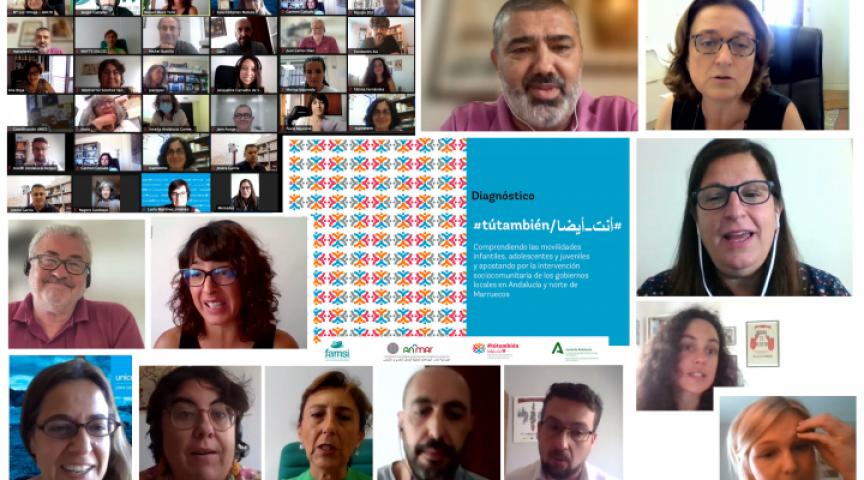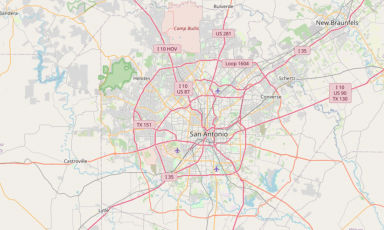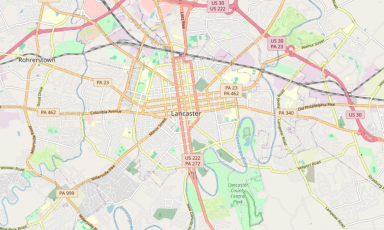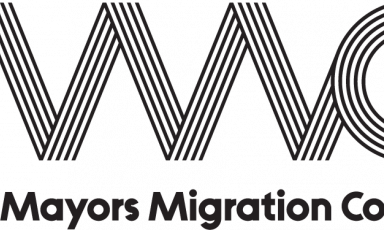FAMSI, Spain
Diagnostic study: Tú También (You too)

Summary
The diagnostic study is part of the #TÚTAMBIÉN / أيضا أنت# project. The document seeks to understand the mobility of children, adolescents and youth by focusing on the socio-community intervention of local governments in Andalusia and northern Morocco; it is part of the project of the same name that seeks to improve inclusion, especially of unaccompanied minor migrants and young people in exile, through education for development, training, exchange of experiences, capacity building and international partnerships.
Forty-two interviews allowed for the reflections of the technical teams of five local governments in Morocco, three in the Tangiers-Tetouan-Al Hoceima region (communes of Martil, Larache and Tetouan) and two in the Oriental region (communes of Nador and Oujda), six municipalities in Andalusia (municipalities of Cádiz, Jerez de la Frontera, Las Cabezas de San Juan, Écija, Seville and Jaén), the Mancomunidad de Municipios del Campo de Gibraltar (province of Cádiz) and the Diputación de Huelva.
With the aim of adding transnational protection mechanisms to the local approach, international entities that play a central role in the promotion of the protection of children, adolescents and young people in migratory processes have also participated in the study. The objective is to articulate actions that place rights at the centre of priorities and overcome xenophobic and racist discourses, with measures to safeguard, protect and defend the rights of children, adolescents and youth.
Impact
The diagnostic analyses the situation of these population groups at origin, and identifies a series of circumstances derived from the systematisation of the testimonies provided by local governments, entities and institutions. These include: persistent migratory realities, with a history of over 20 years; there is a need to improve the mechanisms for accessing accurate official figures on the number of minors outside the protection system, contrasting the data from the Register of Unaccompanied Foreign Minors with those of the General Commissariat for Foreigners and Borders; the terminology used to denote these minors does not reflect the diversity of the group. As opposed to "unaccompanied foreign minors", we propose the perspective of Amina Bargach, psychiatrist and president of the Atlàntida-Marroc Association, who defines children who migrate as "social beings with complex social networks", thus alluding to the socialisation processes that take place in the social system of origin and reception.
Lessons Learnt
The study advocates for an approach that considers the migration process as a whole, including in the analysis the transnational vision and the local approach, as opposed to the fragmented perception of their contexts of reference. It is crucial not to lose sight of the realities of a very vulnerable group, with a child and youth perspective, while at the same time being an active subject in the realm of challenging situations that they are trying to overcome: gender and generation relations within families, among others. In other words, it has a vision of the migratory process that is driven, among other reasons, by its own search for resources and objectives. Together with this fact, the diagnosis points out, the rights of these children cannot be overlooked, due to the confrontation between the rationale of child protection and the laws on foreigners, which contradict each other and can lead to situations of institutional mistreatment. This vulnerability contrasts with the promotion of inclusion projects by local and regional governments.
However, protection gaps are observed due to the lack of reception resources, the absence of a legal framework for guardianship or the problems of schooling and access to health care or residence permits that they suffer in Morocco. On the Spanish side, the diagnosis points out weaknesses such as the procedures for determining age, the lack of diligence in immediate schooling, the delay in providing documentation to the group or the lack of protection they face when they reach the age of adulthood. Among other considerations, the study devotes special attention to the migration of girls, in growing numbers since 2018, potential victims of human trafficking networks, on occasions, and of both boys and girls, with the aim of being exploited for criminal activities.


